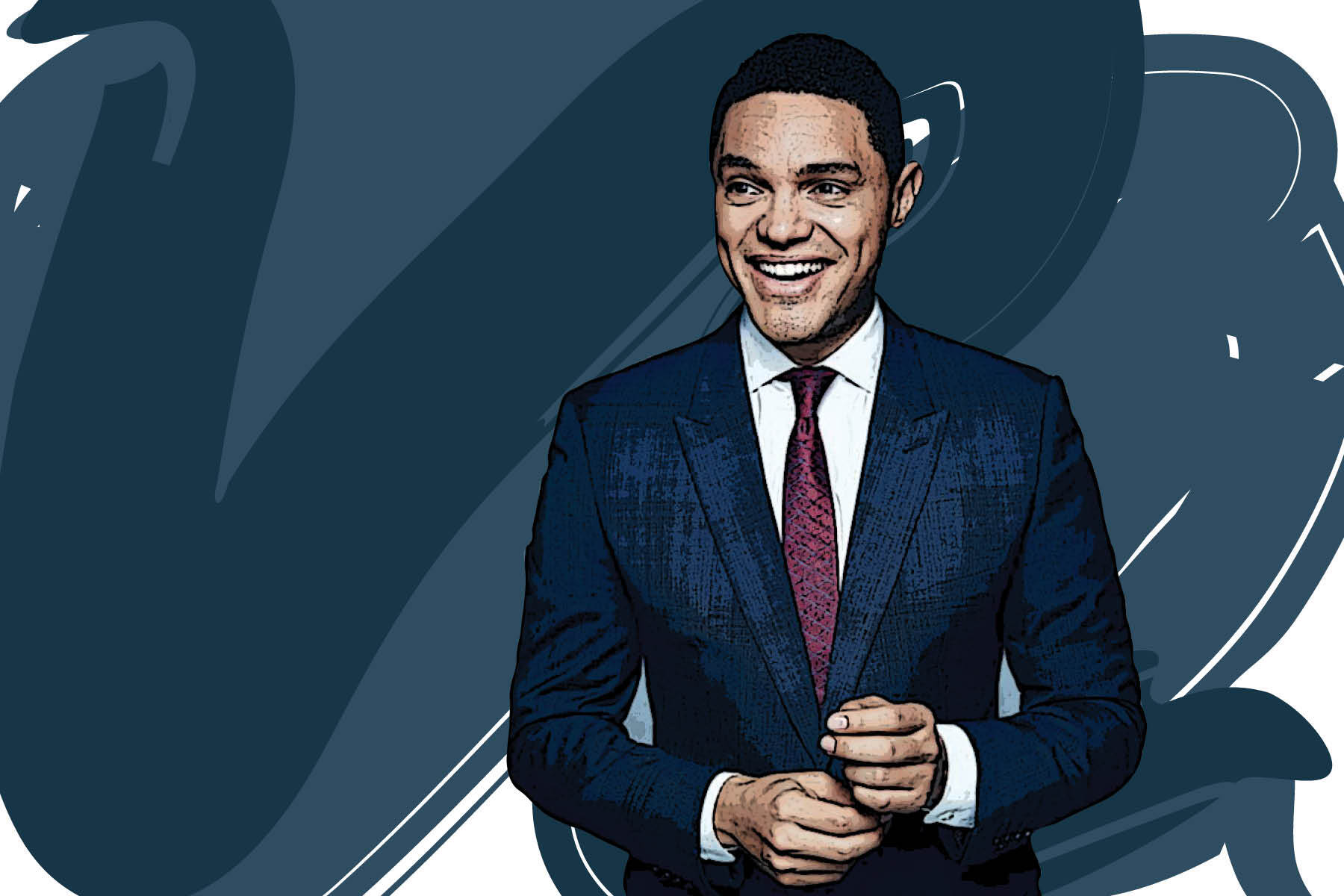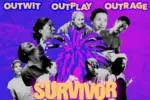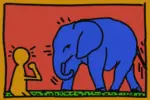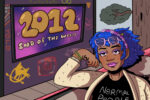In his memoir “Born a Crime,” Trevor Noah details growing up half-Black, half-white in apartheid South Africa. He patches together childhood memories, marked by those with his mother, whose willpower and love for her son take unique forms and prove to be inexhaustible and, at times, even harsh.
Trevor chronicles his awkward years — sprinkled with embarrassing school dances, pimples and infatuation — with sharp wit and perfected self-deprecation. He captivates readers with his relatability and his skillful way of unearthing irony from even the darkest situations.
Yet, his mastery of comedy is only part of what makes his autobiography so good. To say the book was defined by his humor would be to neglect his underlying messages to readers. When rules or ideas did not make sense to Trevor, he challenged them, especially when dealing with the racism he witnessed.
Racism was present within the diabolical and governing force in South Africa under apartheid, and remained pervasive after the regime’s termination. Racism does not make sense. It does not make sense in the United States; it will never make sense, anywhere. And Trevor Noah has a lot to say about it.
The Spectrum of Race
In “Born a Crime,” Trevor describes the system of racial categorization as absurd and arbitrary. For example, under apartheid, Chinese people were registered as Black, and Japanese people as white. Apartheid, a system designed based on the most “effective” examples of segregation and discrimination around the world, dictated rights and privileges to white people, and suffocating oppression to Black people.
For those who were biracial, suddenly the system was less clear. People had more rights if they had lighter skin tones, but were still regarded as inferior to white people. They could “upgrade” to white status with certain behaviors and “downgrade” to Black status with others. Thus, to “fall in between” Black and white meant dealing with pressure to sacrifice one’s identity to make limited advancement in society.
This nonsensical spectrum of race is also omnipresent in the United States. Due to deeply entrenched white supremacy in American society, “whiteness” has been shown time and time again to be a prerequisite for success. Just think about the study exploring racial discrimination finding that a resumé with a “white-sounding” name received significantly more callbacks from employers than a matching resumé with a “Black-sounding” name. Details of this study have been disputed in recent years, but its indication of discrimination in the workforce is unchallenged. The words “too white” or “too Black” are commonly used to diminish individuals’ identities and remind Black people that to embrace their identities is to be at a severe disadvantage in a country run predominantly by old, white men.
The Language Dilemma
A proud polyglot, Trevor often alludes to his fascination with languages. He quotes Nelson Mandela: “If you talk to a man in a language he understands, that goes to his head. If you talk to him in his language, that goes to his heart.” Shared language unites people. Trevor points out how those who speak differently are seen as “different, less intelligent.”
Language differences “[reinforce] racist preconceptions.” He’s right. Look at the United States, where English is not the official language but is treated as such. Those who do not speak it are targets of blatant discrimination. Numerous videos online capture just a fraction of the cases in which Americans mock non-native speakers at the grocery store or in the park, or demand they “go back to their country.” Trevor says the uniting power of language, on the other hand, is perplexing to the typical racist.
When someone looks different but sounds the same, suddenly they don’t know what to believe. Trevor impersonates the imprudent white supremacist who finds himself in conversation with a “white sounding” person of color: “Wait wait [ . . . ]the racism code says if he doesn’t look like me he isn’t like me, but the language code says if he speaks like me he … is like me? Something is off here. I can’t figure this out.”
The Broken Law and Order Systems Post-Apartheid
Trevor’s own words best describe the failing law and order system in apartheid South Africa: “ . . . the law isn’t rational at all. It’s the lottery. What color is your skin? How much money do you have? Who’s your lawyer? Who’s the judge?” People may try to argue that the United States has removed the most explicit examples of discrimination and segregation from law, but there is a clear and deep distinction between the experience of white and Black Americans.
Look at something as simple as traffic stops. In “Born a Crime,” Trevor says that cops, when asked “Why was I pulled over?” would openly respond, “because you’re Black.” In the U.S., Black American’s are 20% more likely to be pulled over by the police. You’d be kidding yourself if you attribute this disparity to some difference in driving abilities between races. Something as simple as the inequality in traffic stops is indicative of a law and order system plagued with racism and prejudice.
Education’s Role In All This
White people both in power and passively participating in apartheid surely understood the impetus behind the institutionalization of racism. In the U.S., Thomas Jefferson, who wrote the words “all men are created equal” in the Declaration of Independence, knew all too well the finalized copy of his proud declaration was severely flawed; the term “all” would not include his own Black slaves (his first draft of the declaration denounced slavery; this part was removed by the other Founding Fathers, a decision Jefferson accepted and then exploited, continuing life as a slaveowner). For that reason, white people attempted to block Black people from education, which, they feared, would empower the oppressed to seek out the end to the system that oppressed them.
Education systems after the “end” of institutionalized racism continue to shield it. Trevor compares the education system in South Africa to that of the United States. In both cases, the history of white supremacy is taught in the past tense: human rights were once violated on all levels, institutionalized racism happened, it was bad, but it’s over, “let’s move on.”
He points out how in Germany, schools teach students about the Holocaust in serious depth, ensuring they feel the weight of it and they “grow up appropriately aware and apologetic.” Injustices in the U.S. and South Africa — especially those launched by white people against Black people — are skimmed over, and even ignored. Did you ever learn about the Tulsa riots in school? If you did, you are in the minority (if you still do not know what that is, I encourage you to look it up).
I write this on Juneteenth, a holiday commemorating the end of slavery, and one I did not learn about until this year because it is never mentioned in public schools, nor is it recognized as a national holiday. Flawed education systems allow white people to continue on with life, unconscious to the wicked actions of their race; many white children grow up to blindly deny the existence of racism in our country altogether. Trevor is deeply disturbed by this problem.
“Born a Crime” Is the Next Book On Your List
Many book lists are circulating with the aim to educate aspiring allies of the Black Lives Matter movement. “Born a Crime” is the next book on your list. If you cannot access the book — or perhaps instead of looking for a physical copy — try out the Audible version. Listening to Trevor recount his life is somehow even better than reading it off the page.
















